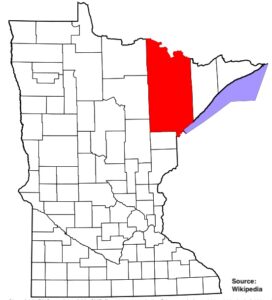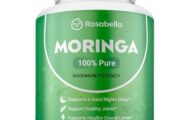In St. Louis County, MN, which encompasses the central and eastern portions of the Iron Range as it stretches from Duluth to the Canadian border, the leaves were reaching peak color when one of its newest and tiniest residents fell gravely ill. It was September 2021.
The baby had developed a Cronobacter infection and would spend 22 days in the hospital successfully fighting it off. But because Minnesota is the only state in the nation that requires reporting of Cronobacter, which is known to cause severe, often fatal, infections in infants, that was not the end of the story.

Reportable or notifiable diseases are considered to be of such great public health importance that when they are diagnosed they must be reported to state health officials who, in turn, report them to the Centers for Disease Control and Prevention (CDC). Reporting illnesses helps health officials understand how disease occurs and to identify outbreaks. Botulism, E. coli, Listeria, Salmonella, and Vibrio are all reportable diseases. Cronobacter is not.
The main reason for this is that Cronobacter isn’t considered a threat to the general population. Most adults don’t get sick from Cronobacter. But babies do and the main vehicle of transmission is powdered infant formula.
“Given the enormous risk Cronobacter poses to such a vulnerable population, reporting should be required in every state,” said Food Poisoning Bulletin Publisher and noted Food Safety Attorney Eric Hageman.
At the Minnesota Department of Health, the epidemiologist specializing in Cronobacter said the state typically sees one case every three to five years and has investigated two previous cases prior to 2019.
When state health officials learned of the infant in St. Louis County, they began a new investigation. They collected information about exposures including the name of the formula the baby had consumed and the lot number on the canister indicating where it was made. Then the agency shared all of this information with the CDC and U.S. Food and Drug Administration (FDA), Doug Schultz, a spokesperson for the Minnesota Department of Health, told Food Poisoning Bulletin.
“As the result of this case and several additional consumer complaints received by FDA, FDA initiated an investigation and conducted environmental sampling at the facility that produced the formula. Multiple environmental samples tested positive for Cronobacter sakazakii,” Schultz said.
Last week, the FDA announced its investigation of the possible link between Similac, EleCare, and Alimentum powdered baby formulas and the illnesses of four infants who consumed them between September 20, 2021, and January 11, 2022.
In addition to the baby in Minnesota, babies in Ohio, and Texas developed Cronobacter infections and another infant in Texas developed a Salmonella infection. All four of the babies were hospitalized. The baby in Ohio passed away.
A recall of Similac, EleCare, or Alimentum powdered baby formula produced at Abbott Nutrition’s plant in Sturgis, MI includes items that have the following identifiers on the bottom of the can:
- the first two digits of the code are 22 through 37 and
- the code on the container contains K8, SH, or Z2, and
- the expiration date is 4-1-2022 (APR 2022) or later.



